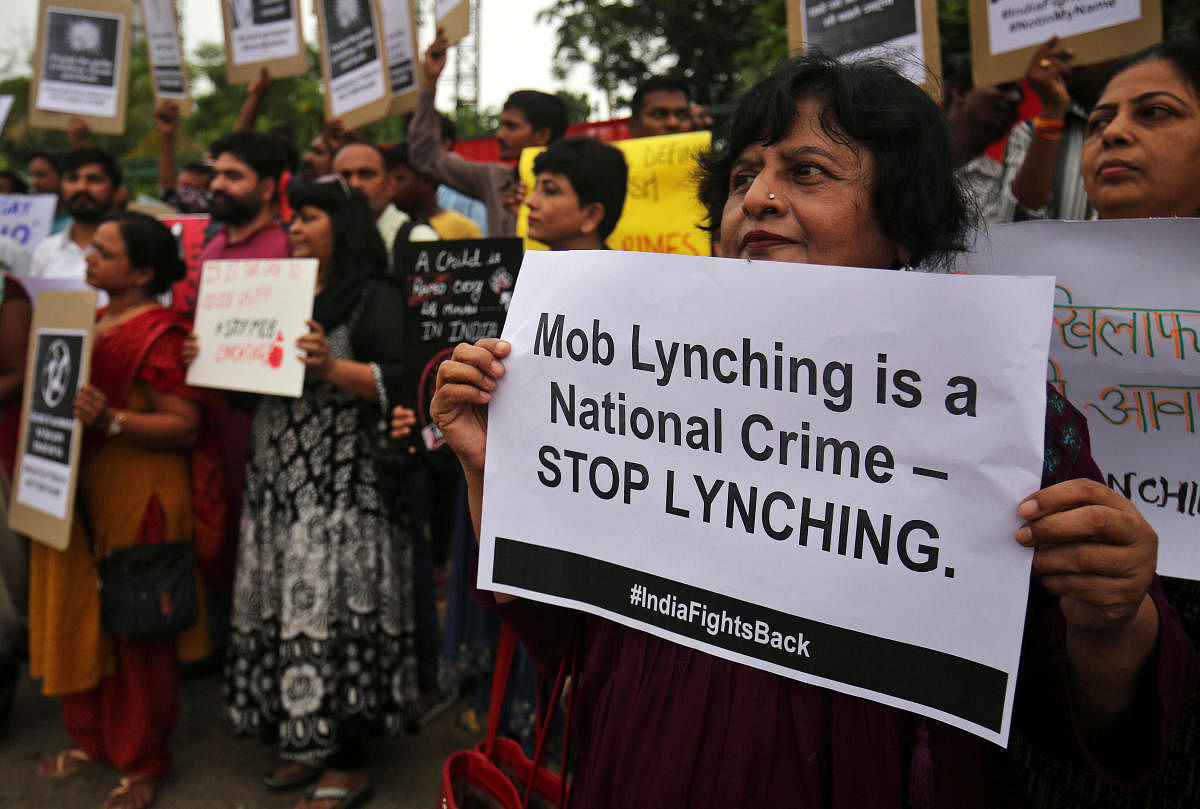
Several incidents of mob lynching in various parts of the country in the recent past have engendered sharp debates on various fora. It will be worthwhile to examine the root cause of religious intolerance and its impact on the individual and society. Religious intolerance was the order of the day in antiquity, barring a few examples of peaceful co-existence of different faiths.
The cause of the conflict was often a belief that one’s religion was the only true religion and one’s god was the only true god and any divergent view was heresy and hence to be condemned and banished. This thought process, however, was greatly impacted by the modern values of freedom, equality, fraternity, particularly after the European Renaissance and the Industrial Revolution. Absolute emphasis on human dignity created a process that brought into focus the inalienable rights of the individual.
This did not, however, happen uniformly across the globe and glaring instances of religious, political and ideological intolerance have been seen in various countries in the last 100 years. The Holocaust, the Middle East violence, the Yugoslavian conflict and violence in Africa have undermined our belief in the sacredness of human dignity, human rights and rule of law.
The establishment of the Holy Roman Empire under Charlemagne in the ninth century AD was perhaps the first instance of collaboration of religion and politics to garner acceptability, in the absence of any other cohesive force. Later, 200 years of the Crusades, the fall of the Byzantine empire, the rise of the Turkish empire, the Protestant movement, the Renaissance, the Wahabi movement, the Thirty-Year War, and the two World Wars were all occasioned by some level of religious intolerance.
To understand religious intolerance today, one only needs to look at the minority demographics in various countries in West Asia and Africa, for instance: the population share of minorities in these countries has declined sharply over the last 75 years or so.
Bertrand Russell said, “Collective fear stimulates herd instinct and tends to produce ferocity towards those who are not regarded as members of the herd”. It can be argued that all religious conflicts are hardly religious but are often political and economic in nature. A religion only serves as a badge for the people to rally around. All instances of religious intolerance in history can be analysed in terms of struggles for power and resources.
“Men never do evil so completely and cheerfully as when they do it from religious conviction,” said Blaise Pascal. Mass communication if perverted can add fuel to the fire very easily. Media, particularly electronic media, can cause havoc in the minds of gullible public by creating and magnifying fear from non-existent threats. Numerous instances of throwing of shoes or black ink on the faces of prominent persons indicates a growing mindset of hatred and violence towards a divergent thought.
Religious intolerance has far reaching effects on society and the individual. A pervasive religious intolerance creates hurdles to social integration which, in turn, leads to sluggish economic growth, which ultimately hurts the weakest sections of the society irrespective of their religion or ideology. This also undermines the confidence of the general public in the efficacy of the rule of law and thereby leads to more and more violations of law. This atmosphere of mistrust, lawlessness and insecurity brutalises society, with scant respect for human values and respectability.
The perpetrator of violence arising from religious intolerance gets emboldened to indulge in non-mob crimes, ultimately becoming a deviant individual and a headache for law enforcement. He also gets desensitised and loses respect for the ideas of brotherhood, fraternity and law. Unchecked religious intolerance leads to a divided society which cannot put a premium on robust human growth and prosperity.
Making of brutal society
The worst sufferers of this poisonous wind are children and women who are already disadvantaged in our society. A desensitised and brutalised individual brings brutality to all domestic and familial relations and becomes despotic, thereby stifling all creativity in society and at home. Children in this atmosphere grow up into sick individuals, having been denied the freshness and freedom of multiculturalism.
Mother Teresa said, “If you judge people, you have no time to love them. The focus therefore needs to shift from hate to love”. The biggest problem of an immature and fledgling democracy in a multicultural society is that while empowering the majority it tends to disempower the minority. Any act of minority assertion gives rise to religious intolerance, which generally gets translated into political partisanship.
When religious practices of one community are not acceptable to another community, while being in the ambit of existing law, inter-faith dialogue facilitated by the government can go a long way in reaching a common ground that satisfies both groups.
From a law enforcement point of view, it is a major challenge to tackle violence arising out of intolerance for the reason that the numbers involved are large and the standard of proof required in court is often not available. Yet, there are enough laws in the statute to curb such violence, provided the police is allowed to do a professional job and political considerations are not allowed to bear on the investigation and prosecution of cases. A swift investigation and trial leading to convictions would go a long way in creating the fear of law in the minds of perpetrators. Fast-track courts must be considered for this problem.
International organisations like Amnesty International, etc., have historically judged our country very harshly on issues of human rights, etc., and they will again come out, all guns blazing, criticising government policies, the minority safety record, freedom of expression, freedom of religion, etc. This is one scenario which a country that is poised to take off can ill afford.
(The writer is a serving IPS officer based in Bengaluru).